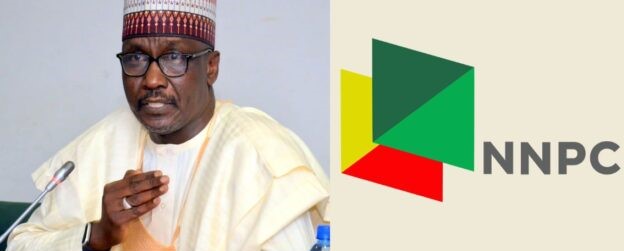By Bassey Udo
He is simple, unassuming, self-effacing in carriage, but deliberate and purposeful in his strides. Like him or not, Mele Kolo Kyari, the Group Chief Executive of the Nigerian National Petroleum Company (NNPC) Limited has significantly impacted the country’s petroleum industry in general and the oil and gas sector in particular.
Within the short period he has been at the helm of affairs, previously as the Group Managing Director of the NNPC, before transiting to the current position, he may not yet realise all he set out to achieve on assumption of office in 2019, but the milestones of his achievements so far have shown legacy footprints that will prove indelible in the annals of chroniclers of history in the Nigerian oil and gas industry. Walk with me.
From Oloibiri to Kolmani
In 1956, Shell D’Arcy set the pace as the pioneer international oil exploration and production company in Nigeria to have drilled Nigeria’s first oil well at Oloibiri in the present day Bayelsa State. Through its Nigerian affiliate, Shell Petroleum Development Company (SPDC) of Nigeria, the Dutch multinational went from that first milestone to drill and develop several oil wells with its joint venture partner, the Nigerian National Petroleum Corporation (NNPC), the forerunner of the present NNPCL.
Other IOCs, like ExxonMobil, through its subsidiary, Mobil Producing Nigeria Unlimited (MPNU), Chevron Nigeria Limited (CNL), Nigerian Agip Oil Company (NAOC), Total Nigeria Producing and others have since joined in drilling several oil wells at both onshore and offshore locations in different parts of the country to make Nigeria one of the world’s leading oil producers.
Yet, these companies have at various times over the years invested huge resources to conduct various seismic exploration activities in search for oil in the northern part of the country without hitting a commercial success story. The poor success rate could have been enough to deter a faint hearted. But not Mallam Kyari.
Part of his key agenda on assumption of office on July 8, 2019 was a commitment to ensure the NNPC discovered oil in the northern part of the country. To him, it was practically impossible to have a region with similar sedimentary characteristics as the rich oil producing fields in the Chad basin and not have oil to produce in commercial volumes.
He mobilised the Nigerian Petroleum Development Company (NPDC), the upstream exploration and exploration subsidiary of the NNPC, to re-evaluate and explore deeper the oil wells drilled and abandoned by Shell Nigeria Exploration and Production Company (SNEPCo) in the Upper Benue Trough and the Gongola Basin in the country’s North Eastern flank, particularly the Kolmani River fields. Kolmani integrated oil field development project located in Alkaleri local government area of
Bauchi State bordering Gombe is reputed to hold about one billion barrels of crude oil reserves.
Kyari led the NNPC drilling party, working with its joint venture partners, Sterling Global Oil, and New Nigeria Development Commission (NNDC) owned by the 19 States of Northern Nigeria, to carry out extensive drilling operations from Kolmani Oil Prospecting Licenses (OPLs) 809 and 810.
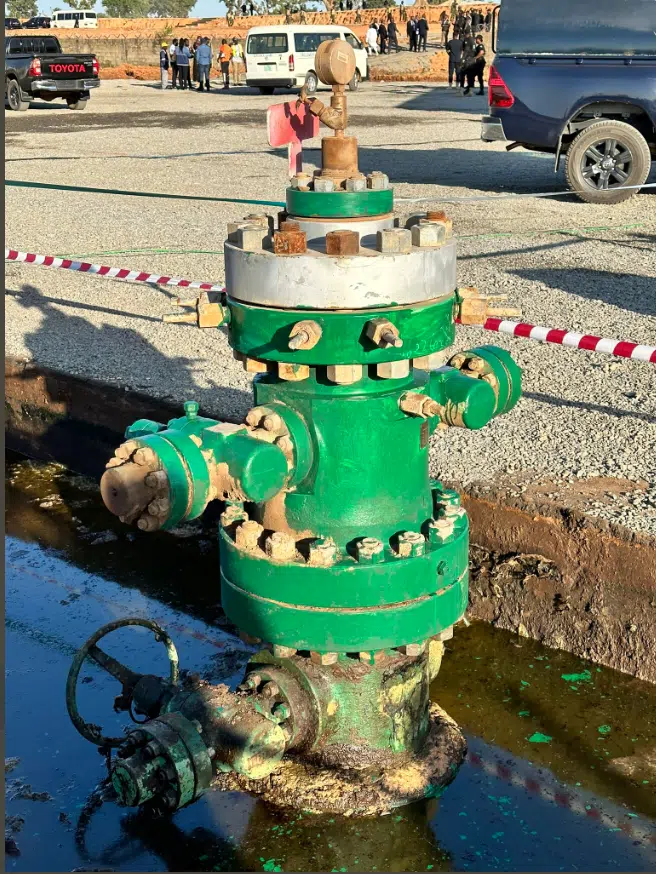
The efforts culminated in the unveiling on November 22, 2022 by President Muhammadu Buhari of the first oil well in the North-East region.
To Kyari’s credit, beyond being part of the twin agenda by the NNPC to raise Nigeria’s national oil reserve to 40 billion barrels by 2025 and the attainment of net-zero carbon emissions by 2060, the exercise was another significant legacy milestone in the country’s oil industry since a similar unveiling of the first oil well at Oloibiri in 1956.
Producing 3m barrels of oil per day
Since the unveiling of the Kolmani field development, Kyari has spearheaded more frontier exploration activities across Niger, Nasarawa, Sokoto, Borno, Yobe, Adamawa, Bauchi and Gombe states in the northern part of the country.
His aspiration has been to raise Nigeria’s oil production capacity from the current 2.3 million barrels per day to about 3 million barrels per day and National oil reserve from about 30 billion barrels to about 40 billion barrels.
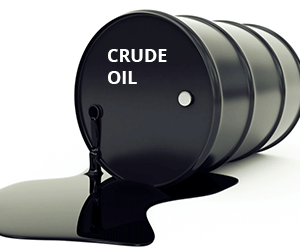
With a proven gas reserve base of 208.62 trillion cubic feet (TCF), the country also plans to increase gas reserves to 220 TCF in less than 10 years and 250 TCF thereafter. Although the operational environment has posed a huge challenge, Kyari is determined to ensure the country realises these targets.
An open, transparent transparent NNPC
At inception, Kyari made it clear in his maiden address to the staff and management of the NNPC that he was going to lead state-owned national oil company that would be open, transparent and accountable to the public.
To set the template for realising this goal, he unfolded an agenda for NNPC’s rebirth with the unveiling of the Transparency, Accountability and Performance Excellence (TAPE), a five-step strategic roadmap for attaining efficiency and global excellence in NNPC’s operational processes.
For NNPC to achieve its goals, Kyari said the TAPE agenda must set the pace to transform and enhance its potential and capacity to compete with other national oil companies around the world.
The key drivers of the TAPE objectives were opening up the NNPC’s financial and operational systems to public scrutiny; ensuring NNPC’s operational processes became transparent and accountable to both the Nigerian people and the government; creating a new system that complied with well-defined operational processes benchmarked against acceptable international standards and global best practices by world-class oil and gas companies.
Under the TAPE agenda, Kyari said, NNPC would establish and maintain the right operational cost structure to guarantee value-addition towards sustained profitability, while developing governance structures for its strategic business units to realise its goals and performance standards and corporate goals.
Breaking over four decades jinx
To establish his management’s legacy of transparency and accountability, Kyari broke a 43 year old jinx in the NNPC by uapdating and publishing the 2018 Audited Financial Statement for the year ended December 31, 2018. The statement showed the company recorded a loss of over N803.9 billion during the year, mainly as a result of increases in crude oil production costs; general and administrative expenses, and rising impairment of receivables and other assets.
To consolidate on the landmark achievement, he quickly followed up with the publication of the company’s 2019 AFS, which showed a remarkable loss reduction to just N2.3 billion, with a declaration of a N287 billion Profit After Tax (PAT).
Highlights of 2019 AFS included a 22 percent decline in general administrative expenses, and a 99.7 percent drop in NNPC’s loss profile, from N803 billion in 2018 to N1.7 billion.
For 2021 fiscal year, profit after tax stood at about N674.1 billion, with profit growing by about N387 billion, or 134.8 percent, from about N287 billion realised in 2020.
Also, he gave approval to continue the regular publication of the Monthly Financial and Operational Report of the NNPC, which began in 2016. The report provided highlights on NNPC’s activities in the different sectors of the industry – upstream, downstream, crude oil and gas production, distribution and export as well as refined petroleum products supply.
Although there remains more grounds to be covered to ensure the culture of transparency and accountability is fully entrenched in the system in all ramifications, Kyari has continued to set the standards to emulate.
From PIB to PIA
Kyari is one of three industry personalities, outside President and Muhammadu Buhari and the immediate past Minister of State for Petroleum Resources, Timipre Sylva, that can take full credit for the resolution of the issues that delayed the passage of the Petroleum Industry Bill (PIB) by the National Assembly for almost two decades.
The enactment of the Petroleum Industry Act (PIA) 2021 in August 2022 is another legacy in the country’s oil and gas sector standing as a sterling testimony to Kyari’s impact in the industry.
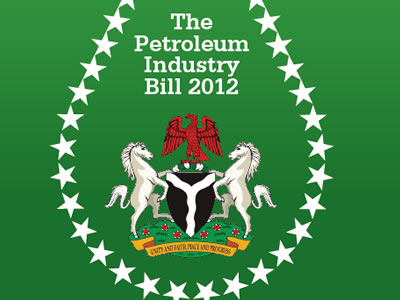
The PIA signalled a new beginning for the industry, in terms of the establishment of a new legal, governance, regulatory, and fiscal framework;
repositioning the operational environment for investment and sustainable growth as well as improved transparency and accountability.
The new law provided the foundation for the transformation of the NNPC into a public liability company – Nigerian National Petroleum Company Limited (NNPCL), regulated under the provisions of the Companies and Allied Matters Act (CAMA); the creation of the Nigerian Midstream and Downstream Petroleum Regulatory Authority (NMDPRA) and Nigerian Upstream Petroleum Regulatory Commission (NUPRC) to reassure the international investors of government’s commitment to the development of the sector.
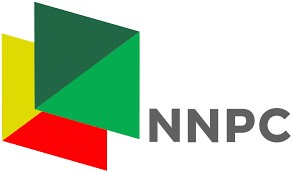
Transition to publicly listed NNPC
Kyari has since announced plans for the NNPCL to enlist in the Nigerian capital market in the near future.
To realise this plan, he said the company would need to continue operating profitably in a consistent manner for at least three consecutive years to enjoy the confidence and trust of Nigerians and the investing public.
NNPC as EITI supporting company
Beyond the enlistment in the capital market, Kyari who, over the years, has been a strong ally with the global EITI, has ensured that the legacy of transparency and accountability in NNPC is not local, but a standard of global acclaim. Through its emergence as an EITI supporting company, Kyari has confirmed the NNPCL as one of the players in the extractive industry that subscribed to the principles, which uphold the EITI Standard and principles through open reporting and public disclosures of details on its finances and operations in Nigeria.
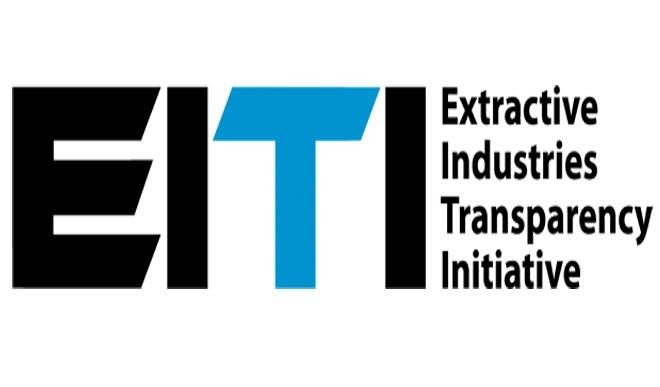
Developing gas for value
Also, Kyari has led the NNPCL to pay more attention to the development of the gas sector in keeping with the aspiration of the government to diversify the country’s economic base, by transforming the nation into a gas-driven economy.
In December 2019, Kyari drove the NNPC and its partners in the Nigeria LNG project to achieve the Final Investment Decision (FID) on the construction of the Train 7 Project after waiting on the drawing board for over 10 years.
This project is expected to generate over $20 billion of revenue to the government over the project’s life cycle, in addition to 10,000 direct and 40,000 indirect jobs.
Already, the Engineering, Procurement and Construction (EPC) contract of the project has been signed with the SCD JV Consortium comprising affiliates of Saipem, Chiyoda and Daewoo for the detailed design and construction phase of the multi-billion dollar project.
With the ground-breaking ceremony of the project conducted by President Buhari since June 15, 2021, Kyari will soon add to his credit another legacy project, which is expected to raise the NLNG production capacity by 35 percent from the current 22 million tonnes per annum (MTPA) to 30 MTPA.
NNPC & Global Energy Transition
Again, Kyari has identified the global energy transition from fossil fuel and carbon emissions as a veritable opportunity to create huge value for the country’s gas resources as well as grow the country’s petroleum industry.
Consequently, he has led the NNPCL to initiate various turn-key gas projects to mobilise the country’s gas resources, transport and supply to several markets in Europe and America currently in need of alternative energy supply sources as a result of the ongoing conflict between Russia and Ukraine.
Some of the legacy projects NNPCL is spearheading under Kyari’s leadership is the 614 kilometres Ajaokuta-Kaduna-Kano (AKK) pipeline system designed to bridge the economic divide between Nigeria’s North and South regions.
The pipeline will convey over eight billion standard cubic feet (SCF) of gas produced from the oil fields in the Niger Delta region for supply to industries in Kano and the adjourning states in the north.
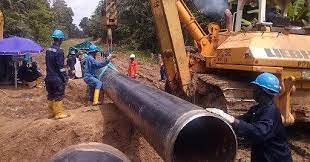
Kyari and NNPCL are also involved in the execution of some regional integration and economic diversification projects, like the West African Gas Pipeline (WAGP) executed in collaboration with Togo, Benin and Ghana, to deepen gas supplies and utilisation within the ECOWAS sub-region.
The construction of the West African Gas Pipeline Expansion Project (WAGPEP) initiated by the Economic Community of West African States (ECOWAS) Commission, will extend the development of the Nigeria-Morocco Gas Pipeline (NMGP) for synergy between the two projects.
The 681 kilometre long multi-billion-dollar project was conceived in 2003 as a regional initiative to convey natural gas resources from Nigeria’s Niger Delta region through the Escravos-Lagos gas pipeline, for delivery at off-take points at Cotonou, Lome and Takoradi in Benin, Togo and Ghana respectively, for power generation and industrialization.
Kyari is also involved in the execution of the 474 million standard cubic feet of gas per day trans-regional pipeline system, which is an extension of the existing WAGP conceived as a new regional onshore and offshore gas system to deliver Nigeria’s natural gas resources to 15 countries in the West and North Africa.
Construction of the 5,660 kilometres long NMGP, which commenced from Nigeria, would traverse Benin, Togo, Ghana, Cote d’Ivoire, Liberia, Sierra Leone, Guinea, Guinea-Bissau, Gambia, Senegal, and Mauritania, to end at Tangiers, a Moroccan port on the Strait of Gibraltar, with a spur connecting the existing Europe gas pipeline through Spain.
The construction of the 4,128 kilometres long Trans-Saharan gas pipeline championed by the NNPCL with its Algerian and Nigerien counterparts as a strategic investment to transport about 30 billion cubic meters of gas per year to the European market, represents another legacy Kyari and NNPCL are bequeathing for Nigeria’s oil and gas industry.
Originally, construction of the pipeline was to commence from Warri, Delta State in Nigeria and run about 1,037 kilometres to the northern part of the country, through about 841 kilometres in Niger Republic, and 2,310 kilometres to Hassi R’Mel in Algeria. The ultimate destination of the pipeline will be a connection point on the existing Trans-Mediterranean, Maghreb–Europe, Medgaz and Galsi pipelines, currently supplying Europe from the gas transmission hubs crossing the Sahel region at El Kala and Beni Saf on Algeria’s Mediterranean coast.
Repairing Nigeria’s four refineries
Although the original plan to fully rehabilitate the nation’s four refineries in Port Harcourt, Warri and Kaduna by 2022 appears not to be progressing according to schedule, Kyari is determined to achieve his dream to transform Nigeria from a net importer of refined petroleum products into net exporter of the commodity, by vigorously pursuing the plan.
Apart from encouraging private investors, like Dangote Group and other mini-refineries developers in the Niger Delta to be involved in the construction of private refineries, Kyari insists there was no going back on his agenda for the rehabilitation of the refineries.
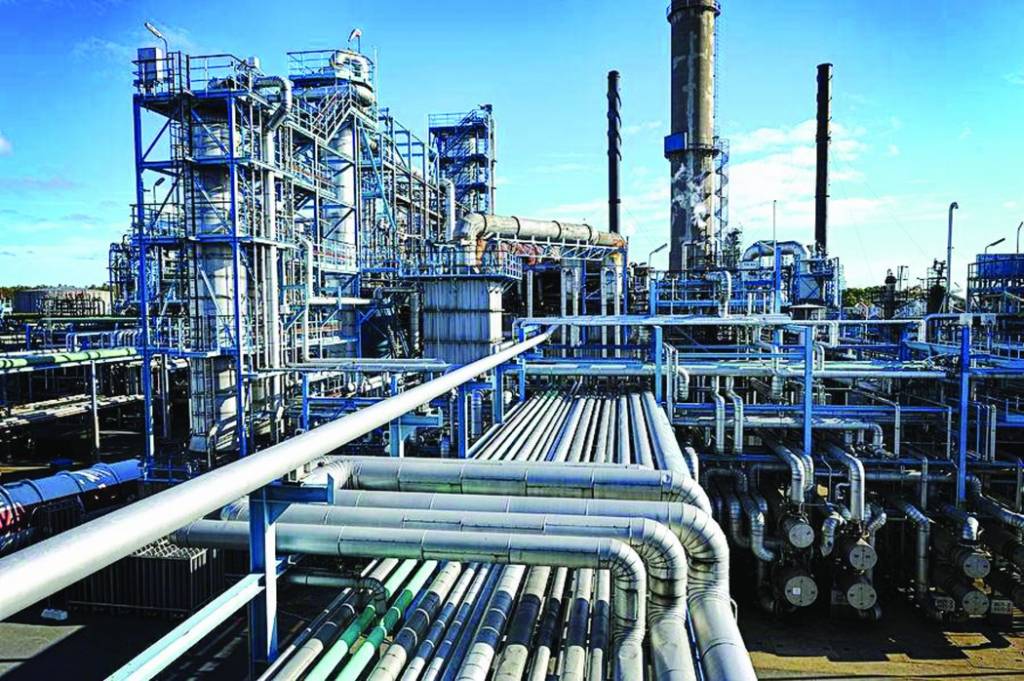
Kyari’s approach to the refinery rehabilitation is different from the previous arrangements by his predecessors, with the involvement of NNPCL local workforce.
Along with the Ministry of Petroleum Resources, the NNPCL’s local engineers are involved in the exercise, by working with the original equipment manufacturers (OEMs) who are the owners of the technology used in building the refineries.
Kyari has encouraged NNPCL’s engineers to work with the National Engineering and Technical Company (NETCO), the engineering and technical subsidiary of the company, along with KBR, the original owners of the engineering technology for the refinery rehabilitation projects to handle the refineries’ rehabilitation exercise.
After the rehabilitation of the refineries, Kyari has assured that the NNPCL would transfer the operation and management of the refineries through an open bid by private investors and qualified professional managers away from the government bureaucracy.
Expanding NNPC beyond traditional portfolios
Kyari’s legacy also covers plans by the NNPCL to expand its activities beyond its traditional operations to other unexplored frontiers, to grow its revenue streams, and cushion the impact associated with the volatility in the international crude oil market.
The NNPC Retail Limited has already launched its range of lubricants into the Nigerian products market, while the company and its partners have moved to develop the infrastructure necessary to encourage domestic utilisation of gas among Nigerians as well as the generation of electricity for the country and the industries.
Besides, Kyari said the NNPC will continue to encourage the use of liquefied petroleum gas (LPG), otherwise known as cooking gas, among Nigerians in their domestic activities, in addition to plans to expand the use of compressed natural gas (CNG) as a cheaper alternative to fuel for cars.
These are all in addition to other business options in renewable energy sources like solar and biofuels for health, real estate to logistics, among others.
Subsidy removal & full deregulation
Perhaps the most enduring legacy Kyari will bequeath to the oil and gas industry will come after he successfully ensures the Federal Government finds a lasting solution to the challenge of rising costs associated with fuel subsidy, which constitutes a major drain to the government revenues.
With NNPCL as the sole importer of petroleum products in Nigeria, Kyari would have succeeded in writing his name in gold if the NNPCL and the government succeeded in putting an end to the subsidy payment debacle in the supply and distribution of petroleum products in the country. Plans to fully deregulate the downstream sector of the petroleum industry will open up the field for participation of other private oil marketers in the supply and distribution of fuel in the country.
Using tax credit to rehabilitate roads
Kyari’s model of NNPC’s corporate social responsibility (CSR) is unique. Under the Federal Government’s Road Infrastructure Development and Refurbishment Investment Tax Credit Policy, the NNPCL undertook the rehabilitation of 4,554 kilometres of Federal roads across the country to ensure a sustained and uninterrupted supply and distribution of petroleum products across the country.
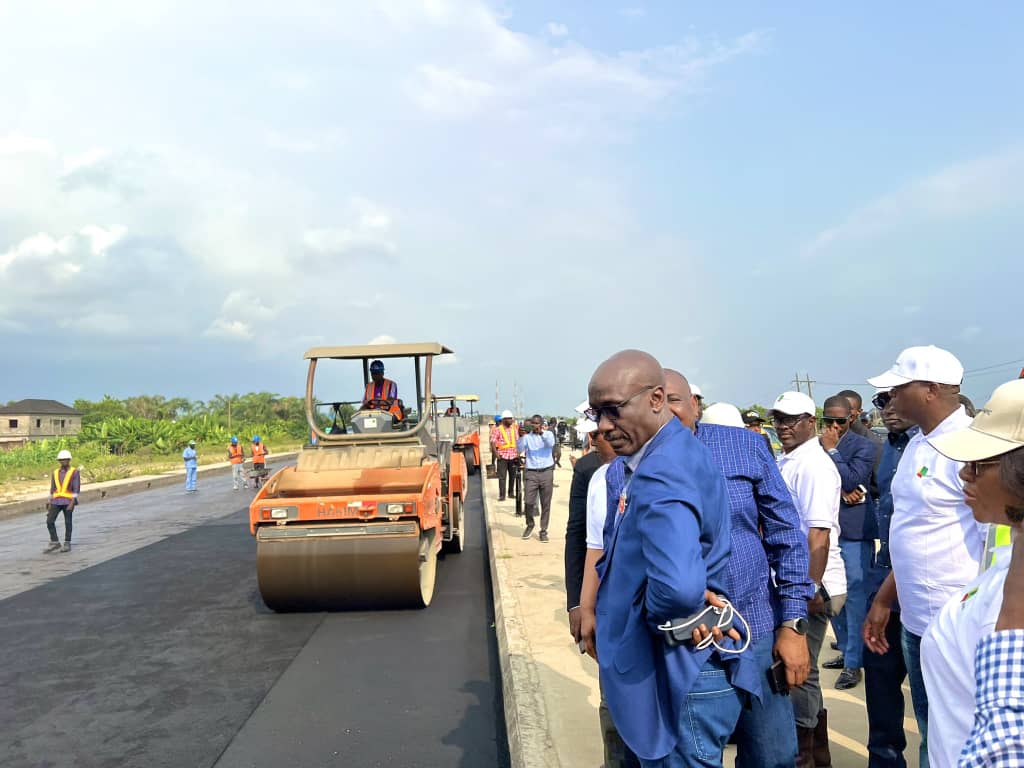
The scheme was introduced in 2019 through the instrumentation of Executive Order No. 7 approved by President Muhammadu Buhari allowing companies to utilise their tax credits with the companies to refurbish the condition of over 195,000 kilometres of roads network infrastructure and transportation in the country.
The milestones may not be exhaustive. But there are every indication that with Kyari on the driving seat at the NNPC and the Nigerian petroleum industry will continue to be the better for it.


